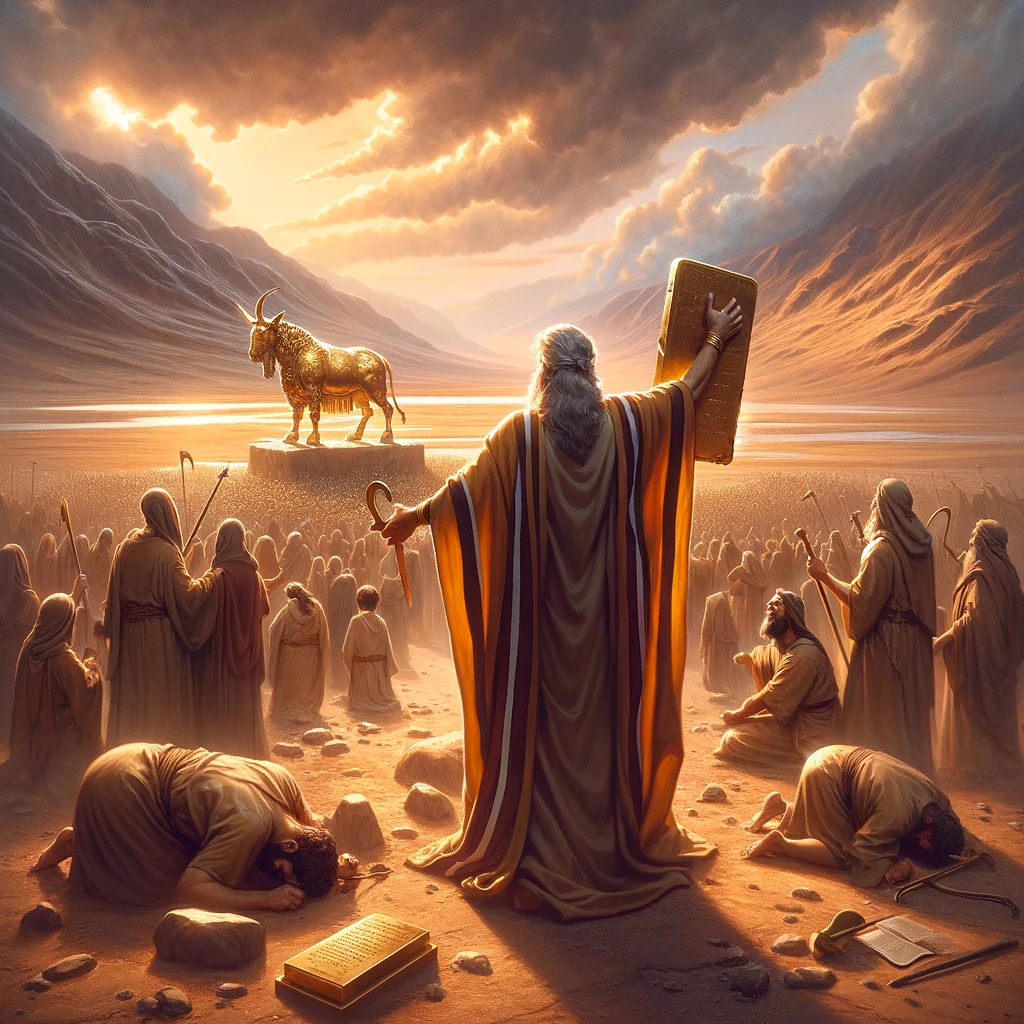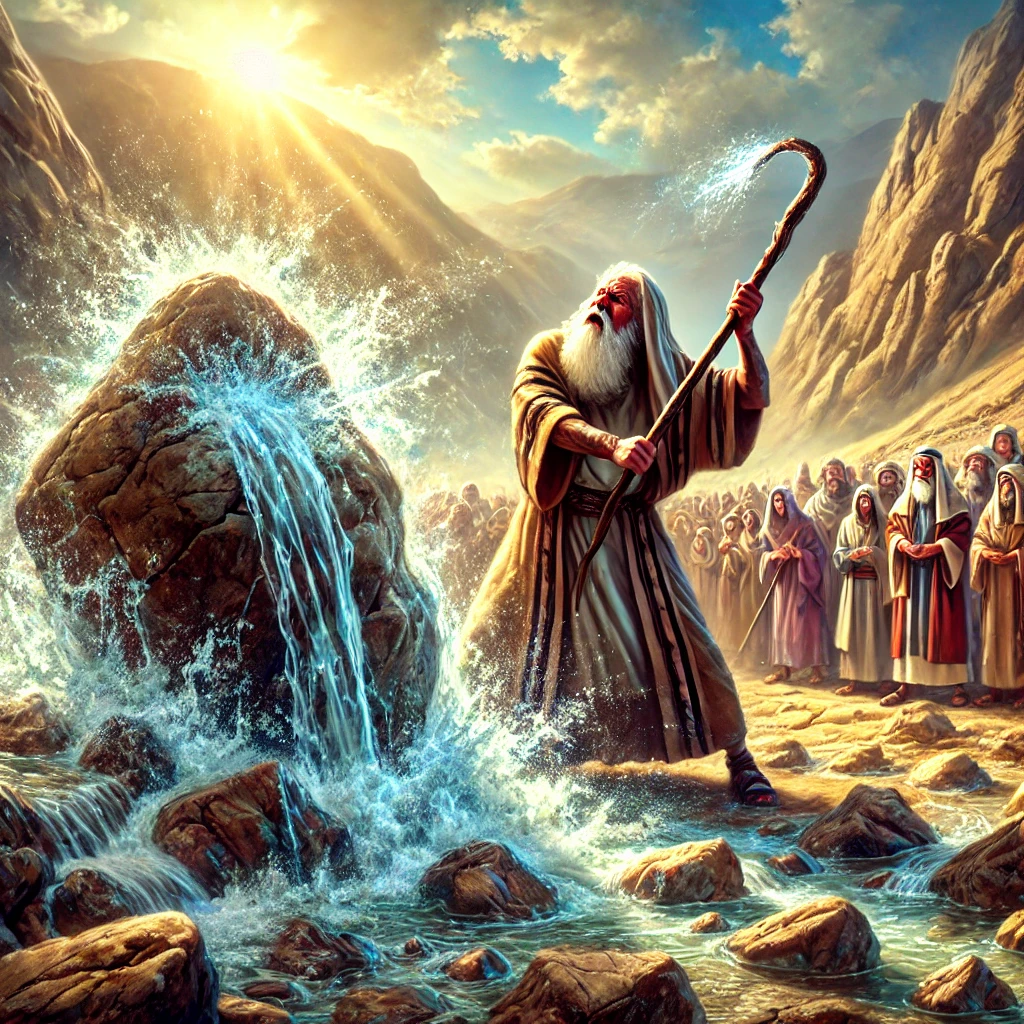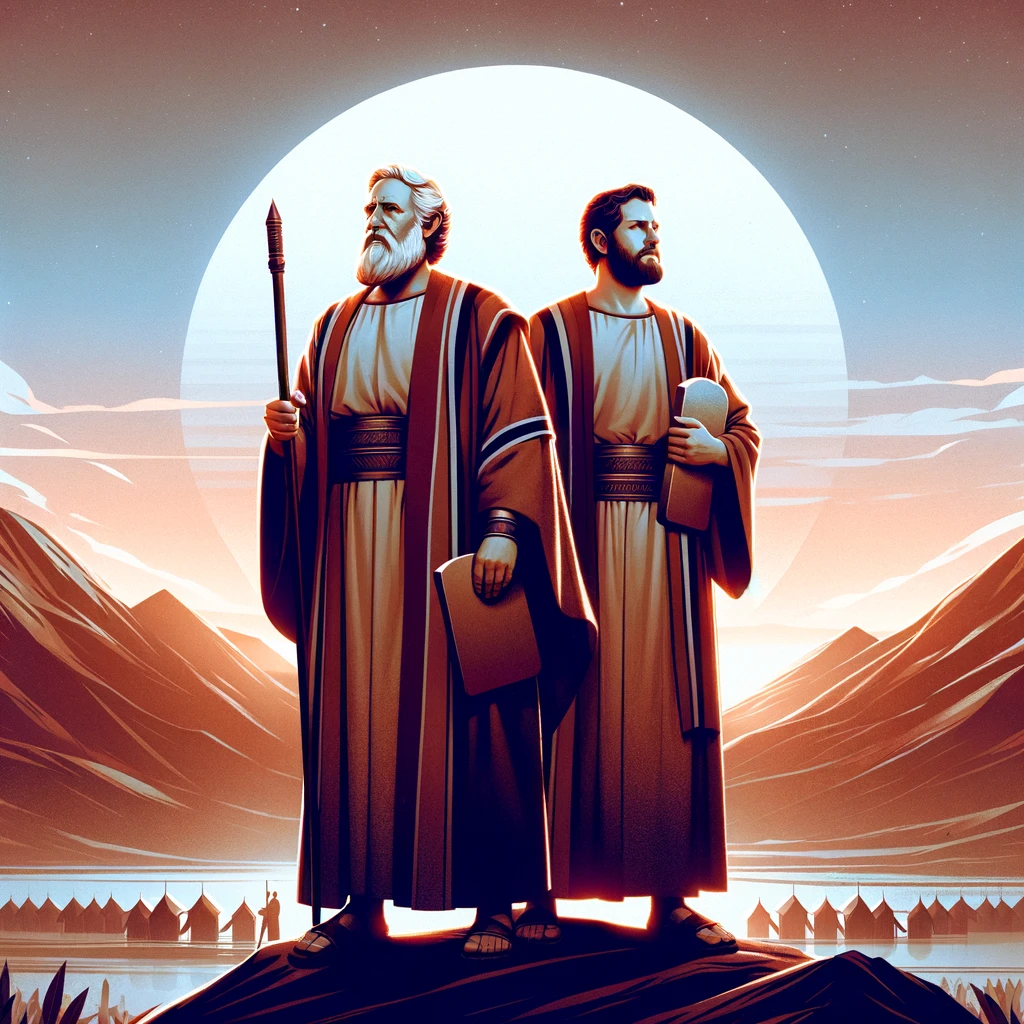Did you know that 75% of people consider their siblings to be their best friends? Yet, how many of us can say we’ve worked together to lead a nation? Enter Moses and Aaron – the biblical dynamic duo that puts modern-day power couples to shame! Their story isn’t just ancient history; it’s a masterclass in faith, teamwork, and overcoming adversity that’s shockingly relevant in 2024. From divine callings to sibling squabbles, these brothers faced it all. So, grab your virtual staff (or maybe just a cup of coffee), and let’s dive into 9 mind-blowing lessons from Moses and Aaron that’ll revolutionize how you view faith and relationships. Trust me, by the end of this, you’ll be ready to take on your own Pharaoh – metaphorically speaking, of course!
The Power of Complementary Strengths: Moses’ Leadership and Aaron’s Eloquence
Ever felt like you’re not good enough because you’re not a jack-of-all-trades? Well, Moses and Aaron have news for you – you don’t have to be! Moses was a powerful leader but struggled with public speaking. Enter Aaron, the smooth talker. Together, they were unstoppable!
In 2024, this lesson is more relevant than ever. In our hyper-competitive world, it’s easy to feel like we need to excel at everything. But here’s the truth: the most effective teams are those that embrace diverse strengths. So, next time you’re forming a partnership or building a team, remember the Moses-Aaron model. Look for someone who complements your skills, not mirrors them.
Divine Calling: Embracing Your Role in a Larger Purpose

Let’s be real – how many of us have heard a burning bush talk? Probably not many! But Moses and Aaron’s story teaches us that a divine calling doesn’t always come with Hollywood special effects. Sometimes, it’s a quiet nudge, a persistent passion, or an unexpected opportunity.
The key is recognizing and responding to that calling, even when it seems daunting. Moses initially resisted, but Aaron stepped up to support him. In 2024, amidst the noise of social media and the pressure to “find your passion,” remember that your calling might be part of a bigger picture. Be open to it, and don’t be afraid to support others in their journey too.
Sibling Support in Times of Crisis: Facing Pharaoh Together
Imagine facing the most powerful man in the world with just your sibling by your side. Terrifying, right? That’s exactly what Moses and Aaron did. Their united front against Pharaoh is a powerful lesson in the strength of family bonds during tough times.
In our world of 2024, where crises seem to pop up faster than we can scroll through our news feeds, having a solid support system is crucial. Whether it’s a global pandemic, economic uncertainty, or personal challenges, remember the power of standing together. Who’s your Aaron? Who are you an Aaron to?
The Pitfalls of Comparison: Aaron’s Golden Calf Moment
Ah, the Golden Calf incident – proof that even biblical heroes had their “What were you thinking?!” moments. When Moses was up on the mountain, Aaron gave in to the people’s demands and created an idol. It’s a stark reminder of what can happen when we let comparison and the desire for popularity cloud our judgment.
In our social media-saturated 2024, the temptation to compare ourselves to others and seek validation through likes and followers is stronger than ever. But Aaron’s story reminds us of the importance of staying true to our values, even when it’s not the popular choice. Next time you’re tempted to create your own “golden calf” for the ‘gram, pause and remember what truly matters.
Intercession and Forgiveness: Moses’ Plea for Aaron

After the Golden Calf fiasco, Moses could have thrown Aaron under the bus (or under the camel, given the setting). Instead, he pleaded with God on Aaron’s behalf. Talk about having your brother’s back!
This powerful act of intercession and forgiveness is a lesson we desperately need in 2024. In a world quick to cancel and slow to forgive, Moses’ example challenges us to stand in the gap for others, especially when they’ve messed up. It’s not about excusing wrongdoing, but about extending grace and allowing room for growth and redemption.
Shared Leadership: Dividing Responsibilities in the Wilderness
Leading a grumbling nation through a desert? Not exactly a walk in the park. Moses and Aaron’s division of responsibilities – with Moses handling overall leadership and Aaron managing priestly duties – is a masterclass in effective delegation.
In 2024, as remote work and flatter organizational structures become more common, the ability to share leadership and respect boundaries is crucial. Whether you’re managing a virtual team or co-leading a project, take a page from Moses and Aaron’s book. Play to each other’s strengths, respect roles, and remember that shared burdens are lighter burdens.
Handling Criticism Together: The Miriam and Aaron Incident
Even dream teams have their moments of discord. When Miriam and Aaron criticized Moses, it could have torn the leadership apart. Instead, it became a lesson in unity and handling public criticism with grace.
In our era of online reviews, Twitter wars, and cancel culture, handling criticism constructively is more important than ever. The next time you face public scrutiny or internal conflicts, channel Moses and Aaron. Stand united, address issues privately when possible, and remember that your response to criticism often speaks louder than the criticism itself.
The Cost of Disobedience: The Waters of Meribah

The incident at Meribah, where both Moses and Aaron disobeyed God’s instructions, is a sobering reminder that actions have consequences – even for leaders. Their mistake cost them entry into the Promised Land.
In 2024, in a world where ethical lapses and leadership failures make headlines daily, this lesson rings truer than ever. Integrity matters. Your actions affect not just you, but those you lead and work with. When you make mistakes (and we all do), own up to them, accept the consequences with grace, and use them as learning opportunities.
Legacy and Succession: Passing the Mantle to the Next Generation
As their journey neared its end, Moses and Aaron focused on preparing the next generation of leaders. They understood that true leadership isn’t just about the present, but about ensuring a strong future.
In our rapidly changing world of 2024, where industries can be disrupted overnight, thinking about succession and legacy is crucial. How are you mentoring those coming after you? What values and lessons are you passing on? Remember, the true measure of your leadership might not be what you accomplish, but who you empower to lead after you.
Wow, what a journey through the sands of time! From the courts of Pharaoh to the precipice of the Promised Land, Moses and Aaron’s story is a testament to the incredible power of faith, brotherhood, and teamwork. But here’s the kicker – their struggles and triumphs aren’t just gathering dust in ancient scrolls. They’re a vibrant blueprint for navigating our relationships and challenges in 2024!
Whether you’re tackling a work project with a sibling, supporting a friend through a crisis, or just trying to keep the faith in tough times, remember: great partnerships can move mountains (or part seas, if that’s more your style). So, the next time you face your own “Pharaoh,” take a page from Moses and Aaron’s playbook. Stand tall, lean on each other, and step out in faith. After all, the greatest miracles often happen when we dare to believe and work together. Ready to embrace your own divine partnership?
If you enjoyed this article, you might also be interested in our in-depth exploration of another fascinating aspect of Moses’ life. Check out our article “The Most Astonishing Miracles of Moses” to discover more about the incredible events that shaped this legendary leader’s journey. From the burning bush to the parting of the Red Sea, you’ll gain new insights into these timeless stories and their relevance for today.
FAQ: Moses & Aaron – Faith and Brotherhood
Q1: Were Moses and Aaron really brothers?
A1: Yes, Moses and Aaron were biological brothers, with Aaron being the older of the two.
Q2: Why did God choose Aaron to speak for Moses?
A2: Moses felt insecure about his speaking abilities, so God appointed Aaron, who was more eloquent, to be Moses’ spokesperson.
Q3: Did Moses and Aaron always get along?
A3: While they generally worked well together, there were instances of disagreement, such as the criticism incident with their sister Miriam.
Q4: What roles did Moses and Aaron play in the Exodus?
A4: Moses was the overall leader and prophet, while Aaron served as the high priest and often acted as Moses’ spokesperson.
Q5: How did their leadership end?
A5: Both Moses and Aaron were prohibited from entering the Promised Land due to disobedience at Meribah. Aaron died on Mount Hor, while Moses died on Mount Nebo after viewing the Promised Land.
Dive Deeper into Biblical Leadership
For a comprehensive academic perspective on Moses and Aaron’s leadership, check out this article from the Journal of Biblical Literature: “Moses and Aaron: Models of Biblical Leadership” at https://www.jstor.org/stable/3268349. This scholarly analysis provides deeper insights into the dynamics of their relationship and leadership styles.



